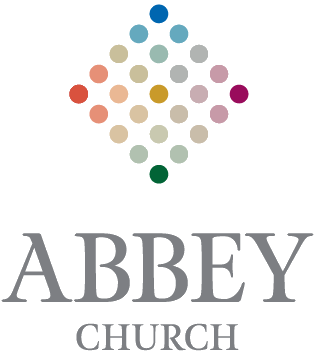Every member and every child of every member of Abbey is entitled to expect and receive pastoral care…..

What pastoral care is
These days people, if they have any idea about ‘pastoral care’ at all, think that it is the odd visit for a cup of tea and a chat by the Minister or someone appointed to do that kind of thing. This may be extended to include a visit at home or in hospital during or following illness, but not much more. At Abbey we believe that pastoral care is much more than that. And we are not alone, for throughout much of the Church’s history a great deal of time, effort and thought went into this ministry. Nothing was taken for granted and nothing was left to chance. That’s because, as the word suggests, people had to be looked after, attended to, and provided for in much the same way as a shepherd cares for the sheep.
Different traditions have had their own way of organising this kind of routine care, and patterns have adapted as people’s lifestyles have changed. In the past, people used to live, work and worship all their lives in one small area. Today people move from place to place and they may work quite a long distance from home. In a city like Dublin we find that there are all kinds of domestic and professional arrangements that challenge the traditional models of pastoral care. Chief amongst these challenges is whether we should allow modern lifestyles to dictate pastoral models, or whether (given how undermining such lifestyles can be to humanness and community) we should use pastoral models to draw people back to more beneficial lifestyles.
The Presbyterian Church in Ireland has recently been encouraging congregations to review their pastoral care provision in order to maximise its relevance and effectiveness, and at Abbey we are adapting one traditional model by linking it into our Cell Group model. We’ll say more about this in a moment.
Let’s return to the nature of pastoral care and the expectations people ought to have concerning it. Pastoral care is not just a little visit and chat. Pastoral care is not crisis counselling (which we consider below). In a way pastoral care lies somewhere between these two poles. It forms part of our model for spiritual formation to encourage growth in maturity and effectiveness in mission. Every Christian ought to pursue God’s purpose for the world and that means, amongst other things, becoming the fully human royal-priesthood that reflects God’s glory to the world and reflects the world’s praises to God. When God calls us to faith in Jesus, our old nature is put to death and our new nature is brought to life. Thereafter we collaborate with the Spirit, using the various means of grace that God provides (Bible, prayer, church, sacraments etc), to develop that nature and become fluent in the language of the New Creation. Habits must be acquired, practised and honed as part of and as a response to daily life.
Sometimes there are extraordinary moments of blessing or challenge in our lives, but more often our days are ordinary and unexceptional. Pastoral care attends to this ordinariness and alerts people to the extraordinary encounters one can have with God and the whispers of God present in that ordinariness. If you have read our piece on Cell Groups you will notice that they are focused on developing this very thing, but the pastoral care provides a supplement to the Cell Group (or an alternative for those who choose not belong to a Cell Group). With this in mind we can briefly explain the mechanism.
Who provides pastoral care
Currently pastoral care is provided by the Minister and the Elders. As the Cell Groups develop we will introduce Cell Group leaders into the scheme. Each Elder has a number of families to care for and as new members join us they also will be provided with a particular Elder. Each Elder has his/her particular personality, style and way of relating to people so we do not prescribe one particular approach; although we are reflecting upon spiritual formation and pastoral care and we might alter things in the future. Elders will normally visit each of their families between four and six times a year. Some Elders will visit more frequently those members who can no longer get to services. These are their routine visits, but additional visits may be requested or offered depending on circumstances. It may also be the case that an Elder will supplement personal visits with phone calls and informal contact. The Minister also makes routine visits (although these will not be so frequent) and will respond to every request for a visit. Once again this aspect of our ministry is under review and may change to provide improved pastoral care. We should also add that many of our members visit and call people to make sure they are doing well; flowers from the Sunday Celebrations are delivered personally to our older members throughout the year and these members are invited to coffee mornings to meet together and maintain contact. Our Abbey Magazine will likewise provide news and contact for people. All of these elements contribute to pastoral care.
How to access pastoral care
In addition to the routine visits and contact there are a number of ways to access pastoral care:
- Contact your Elder (if you don’t know who your Elder is contact the Minister)
- Contact the Minister (by personal request, telephone, e-mail or letter)
- Contact your Cell Group Leader
- Contact any other church member (to ask on your behalf)
We are aware of deficiencies in our pastoral care and we are mindful of the diverse needs and constraints that each family faces, but we would ask you to help us care for you by:
- Informing your Elder of any changes of address, telephone, e-mail
- Agreeing with your Elder suitable dates in advance and keeping these
- Taking seriously the nature and intention of pastoral care
- Preparing for visits by praying and reflecting on your spiritual health
- Arranging a suitable context: turn the television off, put the phone on answer, avoid possible interruptions from friends/ neighbours etc.
- Expecting to meet God and be changed for the better
